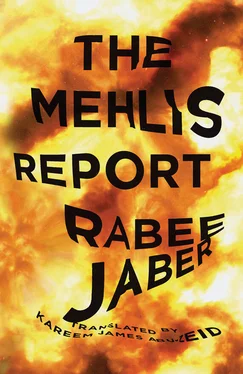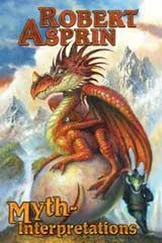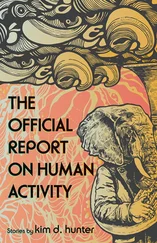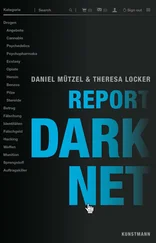I thanked the old woman for the omelet. I wanted to wash my plate, but she said that wasn’t necessary right now. She said I should rest: I’d come a long way, and it was best for me not to tire myself out anymore.
The young woman took me to a room with a bed. There was a dresser with a book and a small mirror on it. The woman said good-night and left, closing the door behind her. I was alone under the yellow overhead light. I walked, half-asleep, to the small mirror and picked it up. But before I did so, I noticed my clothes had dried against my skin. Maybe they weren’t completely dry, but I couldn’t feel much moisture now. The most important thing was that I was feeling better. After the shower and food and water, after seeing the young woman’s serene face as she read the book — after all of that — I was feeling better. Some of my fatigue had left me, and I was, to a certain extent, feeling relaxed.
I looked in the mirror and saw my face, that familiar visage. True, that face I knew so well looked a little tired, especially under the eyes, but I was all right. The blue beneath my eyes was from my lack of sleep. I hadn’t slept at all the whole time I was kidnapped. I was too afraid. The fear was incredible. “Try to forget that. Don’t think about it.” That’s right. That’s what the woman had said. I examined my face in the mirror and discovered a dark bruise on my ear and cheek where the last blow had landed. The bruise was black, not blue. It was under the skin. I thought about rubbing some ointment on it. But even with ointment, it would take at least a few days to disappear. “Maybe weeks,” I thought.
Cecilia and Saman see each other every night: on Monday, on Tuesday, Wednesday, Thursday, Friday, Saturday. It’s now the morning of Sunday, October 16th, 2005, and they’re supposed to meet tonight as well. Cecilia leaves work before nine. These days the Monoprix is open until 11:30, but she leaves before the supermarket shuts its doors because no one comes and orders food from the kitchen after the iftar meal. Anything ordered after six o’clock is pre-made — Cecilia doesn’t stay in the kitchen. She’s exhausted. She’s been rushing around since the morning, and is out of breath by the evening. Her fingers hurt. Her limbs are numb. She walks slowly now, as if nails had been driven into her feet. Yet despite all this, she feels relaxed once she makes it home. She takes two Panadols and sits down with Saman. They eat and talk. They watch TV and tell each other about their days.
Saman is learning to cook now. He says the time has come, and laughs. Cecilia says men start growing up at forty. Saman replies that people say men start becoming ignorant at that age. Cecilia says they only become ignorant if they’re married, but those who aren’t married are blessed, and learn how to cook.
Saman never spends the night at her place. He stays there until midnight, until one o’clock in the morning. Sometimes he stays until two. They hear a rooster crowing for dawn, and are amazed there’s a rooster in this city. Cecilia doesn’t spend the night with Saman when they have dinner at his place. She stays there until midnight, until one. Sometimes she stays until two. They hear the old clock strike twice in the large parlor: That’s our rooster, Saman says. She never goes home alone. Saman drives her in the Dodge. They don’t walk there, even though it’s nearby. On foot, if he’s by himself, he covers the distance in ten minutes. With her, it takes fifteen. But after midnight he doesn’t take her home on foot. They take the car. There are soldiers and security at the intersections. Beirut is on its guard these days. The Mehlis Report will be out in less than a week. People are tense. A sense of anticipation reigns over the city. The owners of the smaller shops aren’t restocking. Canned goods disappear from the shelves, which then remain empty — the shopkeepers are afraid to buy more goods right now. Saman asks the owner of the corner store why his shelves are empty. The shopkeeper says all hell’s going to break loose.
A few nights ago — this past Tuesday evening — the two of them were eating griddled chicken with potatoes and a fattoush salad, and drinking arrack. Cecilia made the fattoush . But Saman made the griddled chicken: he cleaned the chicken; he rubbed oil on the griddle; he sliced the potatoes; he peeled the garlic; he lit the oven. The two of them were laughing as she kept telling him to pay attention to this, or to be careful of that. She gave him instructions while he kept saying: I know, I know, do you really think I don’t know that? And their laughter grew louder as they drank the arrack mixed with ice water.
She asked about his day, and he said Roger had come by and they’d had a coffee at the Étoile, and that politicians and journalists at the next table over were talking about Mehlis.
She said everyone at Monoprix was talking about Mehlis. Mehlis and the ship at the port. And she told him the man in charge of the produce section said the UN was now saying it was going to extend the investigatory commission’s term so as to trick the people who blew up the cars: that way they won’t blow up a lot of cars right now, that way they won’t feel under pressure before the report is issued.
Saman laughed, replying that the people at the Étoile were saying similar things.
On Wednesday night he said: Tonight I’m going to learn how to cook Japanese. Cecilia laughed until her sides split. Saman asked if she was shirking her duties.
She taught him instead how to make potato salad. She said it was like fattoush , but that you use boiled potatoes rather than toasted pita bread. He smiled as they tasted the salad they’d made together: it was delicious.
“Nothing’s easier than making salad,” he said as he helped himself to a second serving.
They laughed and forgot everything that had happened that day. After the meal, they turned on the TV for a quarter hour. The news had been the same all day: the suicide of the Syrian Interior Minister, General Ghazi Kanaan; Pakistan’s concern about aftershocks following the earthquake; the Brazilian ship with seven thousand cows on board leaving the port of Beirut after a warning from the municipality; Bayern Munich was preparing for a match against.
Thursday night she taught him how to make spaghetti with tomatoes, basil, and olive oil.
Friday night she taught him how to make bean stew. If you learn to make a single type of stew, she said, you can cook them all.
She didn’t give him a cooking lesson on Saturday night. She said she was tired. She’d been cooking all day. She can’t set foot in the kitchen right now. I’ll go in alone, Saman replied, and make you some stuffed eggplant.
They didn’t stay in that night. They went out in the city. The ABC Mall was teeming with people. “They’ll be leaving soon,” thought Saman. The people were afraid to gather in places like that too late at night. On the radio he had heard — while he was running his car in the garage to charge the battery — an announcement from the Interior Ministry asking anyone who had information about the explosions to call this number. The announcement added that whoever called would be compensated.
He sat with Cecilia on the lower level of the ABC Mall, beside the fountain. The murmuring waters. Ham sandwiches with lettuce, tomatoes, pickles, and mustard were wrapped up in the refrigerator. A woman holding a basket of bread was standing behind the fridge and talking to a younger woman wearing the restaurant uniform. Saman ordered a turkey sandwich on oat bread. Cecilia ordered some ice cream. She said she’d had enough food this week. And she said she’d noticed that all the women broadcasters on TV were getting fat these days. All of them. On the LBC channel, on Lebanon Television, on Al-Mustaqbal, on New TV — all of those women had put on weight recently, haven’t you noticed? She had seen them that very morning: they looked happy, but fat. Especially the weather broadcasters. The forecast was for rain that night, and tomorrow as well. Autumn would begin in Beirut that week.
Читать дальше












